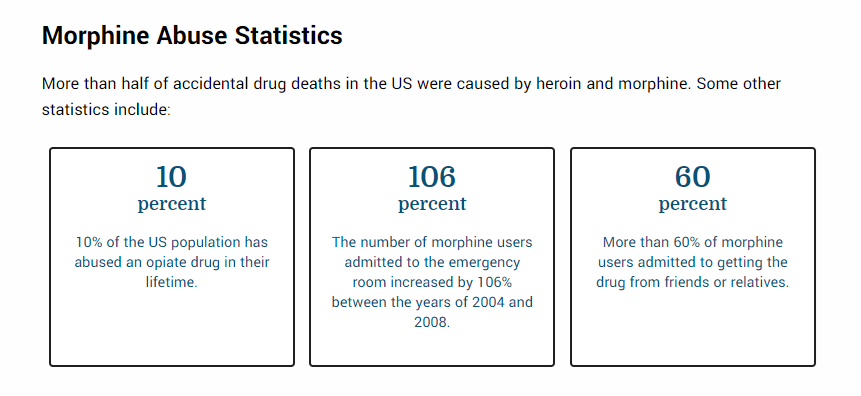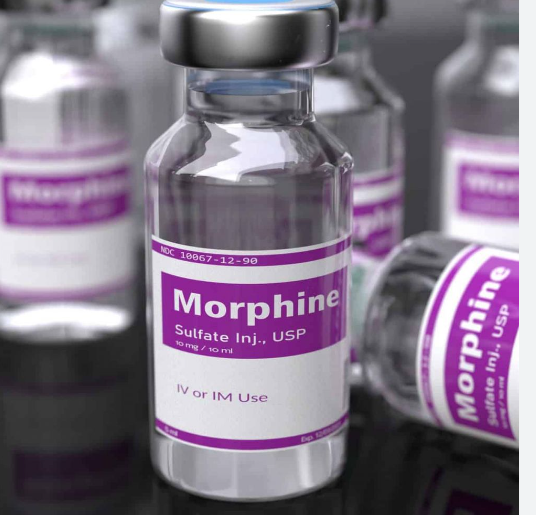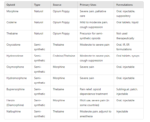Morphine is a potent opioid used primarily for pain management but has a significant potential for abuse and addiction.


Here are some key statistics and information regarding morphine abuse:
1. Prevalence of Opioid Abuse
- General Opioid Abuse: According to the National Institute on Drug Abuse (NIDA), approximately 10.1 million people misused prescription opioids in the U.S. in 2019, including morphine.
- Prescription Opioid Misuse: Among those misusing prescription opioids, morphine accounts for a significant proportion, though specific statistics on morphine alone can be harder to pinpoint.
2. Prescription Rates
- U.S. Prescriptions: In the U.S., the number of morphine prescriptions increased significantly from 2000 to 2012, correlating with the rise in opioid abuse.
- Current Trends: According to the Centers for Disease Control and Prevention (CDC), prescription rates for morphine and other opioids have declined somewhat in recent years due to increased awareness of addiction risks.
3. Overdose Statistics
- Opioid Overdose Deaths: The CDC reported that in 2021, there were over 80,000 opioid overdose deaths in the U.S., with a significant number related to prescription opioids like morphine.
- Specific to Morphine: While specific overdose statistics for morphine alone can be limited, morphine is often included in the broader category of prescription opioid-related deaths.
4. Addiction and Dependence
- Risk of Addiction: Research indicates that around 8-12% of patients prescribed opioids for chronic pain develop an opioid use disorder, which can include morphine.
- Transition to Illicit Drugs: Individuals who misuse prescription opioids, including morphine, are at a higher risk of transitioning to illicit drugs such as heroin, particularly among younger users.
5. Treatment for Morphine Abuse
- Seeking Treatment: According to the Substance Abuse and Mental Health Services Administration (SAMHSA), in 2019, approximately 1.6 million people received treatment for an opioid use disorder, which includes those misusing morphine.
- Medication-Assisted Treatment (MAT): MAT, involving medications such as buprenorphine and methadone, is commonly used for treating opioid use disorders, including those related to morphine abuse.
6. Demographic Information
- Age and Gender: Opioid misuse, including morphine, tends to be higher among young adults (ages 18-25) and is more common in men compared to women.
- Geographic Variations: Certain regions in the U.S. report higher rates of opioid misuse and related overdoses, often influenced by socioeconomic factors and healthcare access.
Conclusion
Morphine abuse remains a significant public health concern, contributing to the ongoing opioid crisis. Awareness and prevention strategies, alongside effective treatment options, are essential to address the challenges posed by morphine and other prescription opioids. If you need more specific or localized statistics, let me know!
Pain Medications, Pain Relief, and Pain Management





